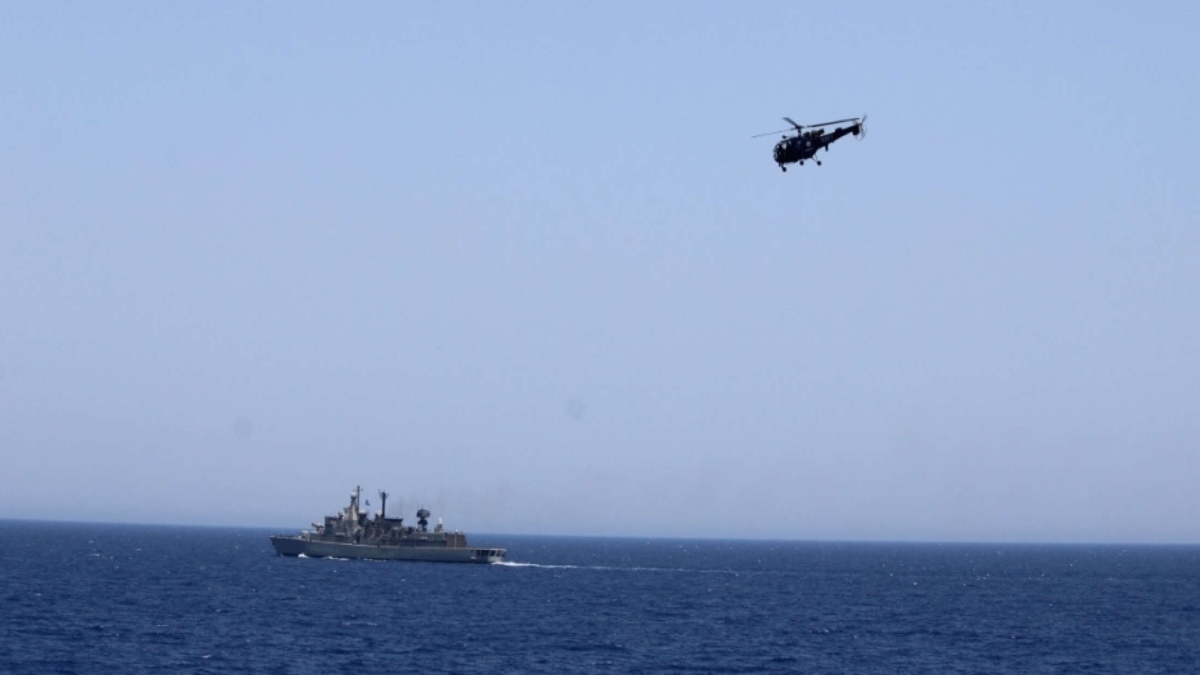


Just days after Indian Foreign Minister Dr Subrahmanyam Jaishankar made his first trip to Greece, the Indian and Greek Navies conducted a historic first joint military training in the Mediterranean Sea. This was a message from Greece to Turkey that it is building new partnerships and a show of power by India that it is not merely a regional power but increasingly a global one.


Jaishankar touched down in Athens on 25 June and did not leave until two days later. During his trip, it was stressed that India and Greece enjoy close and friendly relation which is strengthened by the shared values of democracy, rule of law, pluralism, equality, freedom of speech and respect for human rights. A Mahatma Gandhi statue in Athens was also unveiled.
Speaking with Prime Minister Kyriakos Mitsotakis, the pair stressed that unfortunately Indian-Greek relations were not at the level that they should be, but noted that there will be a rapid strengthening in trade and investment, science and technology, culture, academia and people-to-people contact. They agreed to work together to further enhance collaboration in these areas, but more importantly that they will work towards a strategic partnership. It is recalled that Jaishankar was first supposed to visit Athens in November 2020, but had to reschedule the visit due to Greece’s second wave of Covid-19. Despite this delay, it did not stop relations from growing.
On 25 May, the Greek General Director of the General Directorate of Civil Defence and International Relations, Dr Konstantinos Balomenos, received the Defence Attaché of the Indian Embassy in Prague, Colonel Anupam Ashish. The pair discussed exercises and operational training at bilateral and multilateral levels, military academic training and dealing with hybrid threats. The two officials also discussed the mutual security and stability challenges facing each country. It is therefore unsurprising that on 30 June, just three days after Jaishankar left Greece that the historic naval exercise between the two countries occurred. Specifically, the exercise involved the Indian Navy Frigate INS Tabar and the Greek Themistoklis Frigate in the sea area southwest of Crete.
As Turkey is becoming ever increasingly hostile towards India, particularly regarding their position in support of Pakistan over Jammu and Kashmir, many in Ankara will be feeling uncomfortable that India is beginning to have a naval presence in the Mediterranean, especially alongside the Greek Navy which has never lost a battle since its modern formation in 1821.
The potential for Indian-Greek relations is limitless. Greece offers India access to European Union and Southern European markets via the Port of Piraeus, as well as supporting Indian interests in the European Union and NATO. India offers Greece investments, technology and new products. Undoubtedly though, the most immediate priority is consolidating and strengthening Indian-Greek relations in the military sphere. Both countries have revisionist and aggressive neighbours that openly declare they support each other’s aspirations for territorial expansion — against India in Jammu and Kashmir in the case of Pakistan, and against Greece’s maritime space and Eastern Aegean islands in the case of Turkey.
With both countries identifying that they face a collective threat, Jaishankar’s visit to Athens and the following joint military exercise just days later demonstrates that the two countries have much to gain from close relations. Mitsotakis stressed to Jaishankar the ancient civilisational ties between India and Greece, and it is from this very foundation that the new relations between these two modern democracies will be built upon.
Paul Antonopoulos is a Doctorate researcher based in Athens. He has a special interest in international relations, with a particular focus on multipolarity and the geographic space between ancient civilizational countries stretching from Greece to India. He frequently appears on television, radio and online/print media as a geopolitical expert.